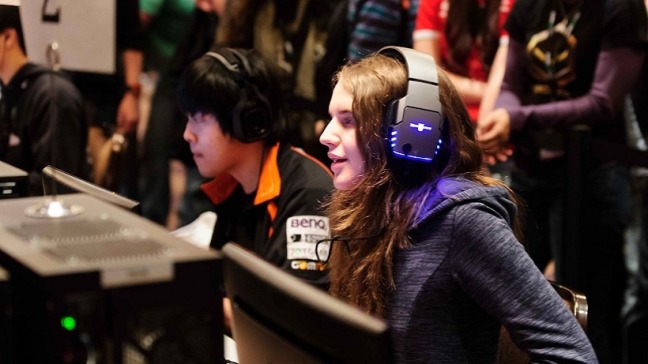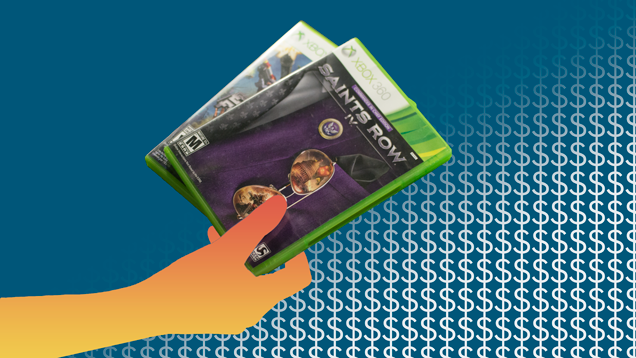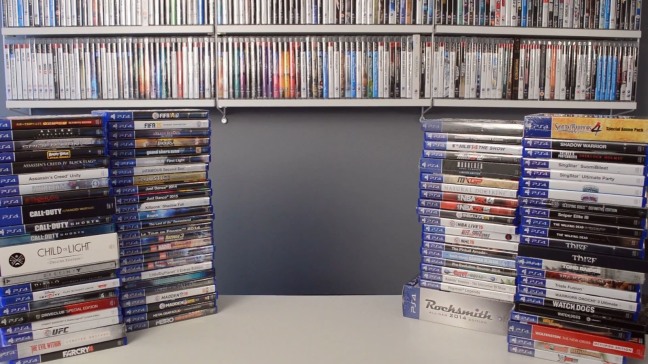With every big industry there follows a diverse community of consumers, and the games industry is no different, and understanding the consumers is key to selling your products, as this knowledge can help you focus more on the things that will draw people in, through the means of both creating and advertising your product in a way that will benefit your sales and standing in the competition, helping your company make a name for itself in the industry.
To help understand the community and your player base, we must place the consumers into categories, to learn of their willingness to play certain games, and whether or not they will purchase your product.
Player Types:
There are many types of gamers, but here we are going to stick to three that most companies tend to look out for.
There are:
Casual Gamers:

As the name suggests, these are players who play games casually, they are someone who plays just a few games every year, and probably plays them while they’re not busy and have nothing else to do. They most-likely have previous generation consoles or play them on their smart phone while on train or bus. Stereotypically, casual gamers tend to be older, however your age has little to do with the type of gamer you are. Typically, the casual gamer will play games from 0-2 hours daily, some days not even picking up the game. Casual gamers often prefer sticking to a single game platform and game genre.
These players probably wouldn’t spend too much money on products often, most likely playing free to play games and buying microtransactions when in a bind.
Hardcore Gamers:

A hardcore gamer is someone who will play most types of games and own a large variety of platforms and hardware. When it comes to gaming, hardcore really just means dedicated, as they will invest the most time to play games, typically ranging from 5-8 hours daily, using any free time they have to play. A lot of hardcore gamers also identify as ‘completionists’, a term meaning that they want to complete their game 100% before moving on. Stereotypically, hardcore gamers tend to be around the ages of 14-25 and more predominantly male. Though, gender also has nothing to do with it.
These players can typically spend a lot of their income on games products, whether it be new games, peripherals or games platforms.
Competitive Gamers:

Competitive gamers, also referred to as professional gamers, are people who play for sport and is their profession, (these players can be sponsored in tournaments and gain donations from streaming), in the last decade, e-sports (electronic sports) has been on the rise and more and more players are taking part in tournaments and events. These players will play about as much as a hardcore gamer, but will mostly play multiplayer games and aim to be the best. These players will probably stick to one platform to focus their attention on to, as changing controllers often can be very jarring when aiming for a high skill level in playing. Typically these players tend to be around the ages of 18-35 years old.
These players probably would spend less money on different products, as their primary focus would just be a few games to be better at, however they may invest in better equipment for playing to ensure a better play style.
Age is also a big factor in understanding the consumer, its no secret that people below the age of 18 have played Call of Duty before, but the developers would have been striving to make a game suitable and most appealing for those who are 18 and up. Whereas LittleBigPlanet, a game with the age rating of 7+ has been designed so a younger audience can get plenty of enjoyment out of it, but ages above can still appreciate it.
Buyer Types:
Like player types, there are lots of buyer types to keep in mind when selling your game, these are some a lot of companies tend to consider:
Average Buyer:

This is someone who will buy the odd game at release every now and then, and sometimes the DLCs too if their income will allow it, they are not too fussed on having everything and getting the special editions. They will typically borrow their games or get them second hand as it is easier on their wallets, and will often have the previous generation console too, as the games would be more affordable.
Collectors:

This is the type of consumer that most big game companies will try to sell their extra content to, nowadays pre-ordering games is much more common than it once was a decade ago, as now companies add in lots of small incentives to appeal to them, such as DLC packs, discounts on the season pass, beta access, and much more, these players will try to own all of it, and will often invest in getting the special editions to get extra merchandise, these players will typically have a flexible income, so doing this often will not be a big deal to them.
Pirates:

Now these players are people that gain access to their products through illegal means, and with websites for this behaviour becoming more prevalent, it doesn’t seem like its going to stop any time soon. Players of this category will typically do this as they don’t see the purchase of the product a wise investment and that they don’t have the money to spare, as this is unfair for the developers and their hard work, some implement ways to mess with the game if it suspects its been pirated, a great example being Michael Jackson: The Experience on the Nintendo DS, if the game was pirated, instead of playing the correct music, the system would blare out vuvuzela sound files instead.
However other people in this category might pirate the game first to see if they’d enjoy it, and then purchase the game to play through properly if they enjoyed the experience, I feel that this has been happening more lately as less and less developers are putting out trials for their game, compared to the previous generation where many could be found.